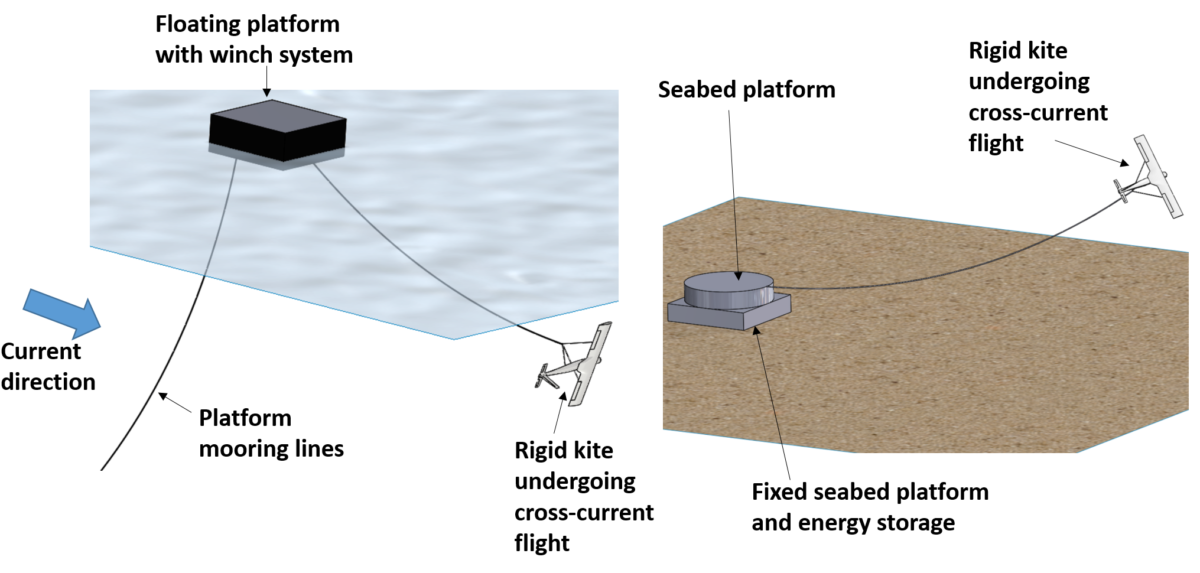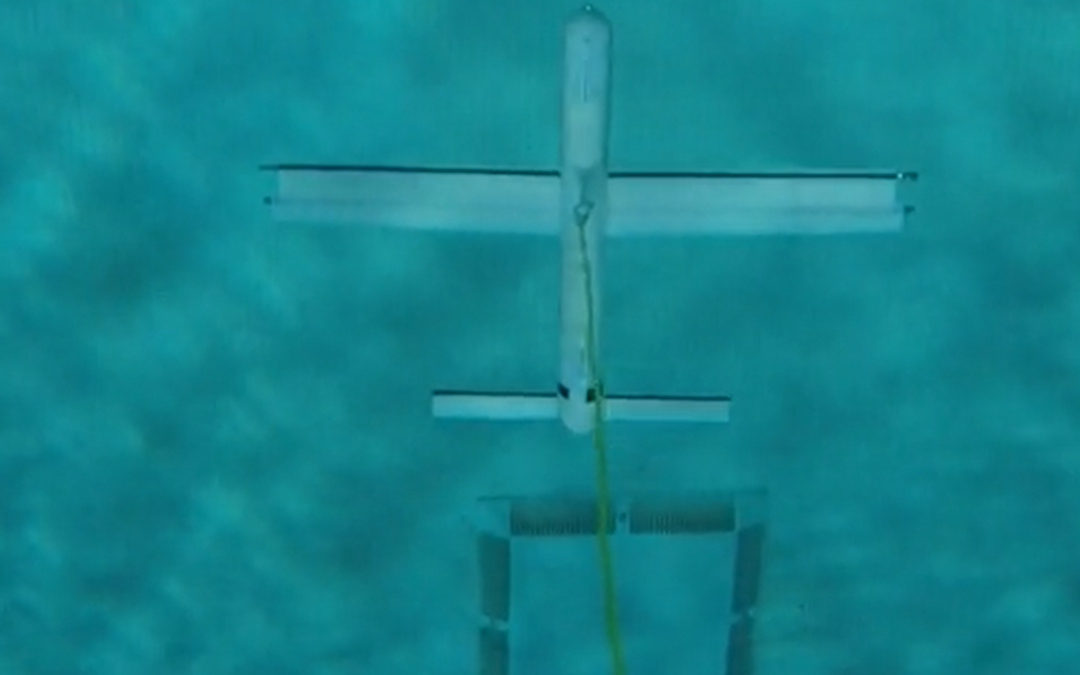The North Carolina Renewable Ocean Energy Program (NCROEP) promotes collaborative research across its partner institutions, and there is currently a lot of excitement surrounding an ongoing project in the Control and Optimization for Renewables and Energy Efficiency (CORE) Lab at NC State University. The lab, which is led by Dr. Chris Vermillion, is researching, among other things, tethered marine hydrokinetic (MHK) energy devices.
In the CORE lab, one of these devices comes in the form of an underwater “kite”. The kite is tethered to a floating platform and is designed to gather and store energy produced by currents coming from multiple directions. This spring, the lab team is testing a kite prototype in the NC State pool, and if all goes well, they plan to begin open water testing in Fall 2021.

Left: A “host computer” helps members of the lab control and monitor their tests. Right: The kite (bottom right corner, closing video) is tethered above. The two floating blue structures at the surface pull the kite along the length of the pool.
Vermillion explains, “Owing to their ability to execute high-speed cross-current motions, underwater kites can generate substantially more power per unit mass — often an order of magnitude more — than traditional fixed devices. Energy is harvested either through on-board rotors or cyclic spooling motion. This makes kites an attractive techno-economic solution for many applications, including Blue Economy applications such as autonomous underwater vehicle (AUV) recharging, along with harvesting ocean current energy from resources such as the Gulf Stream.”

The schematics above illustrate how the kites could be tethered to most efficiently harvest energy from underwater currents.
“The underwater kite design, control, and experimental validation work is a truly multidisciplinary study spanning device design optimization, advanced control, hydrodynamic analysis, resource and techno-economic assessment, fabrication, instrumentation, and testing. This sort of research, which brings together critical expertise from such a diverse range of domains in order to realize impactful ocean energy research, lies at the heart of the NCROEP mission.”
The kite projects being led by NCSU have so far been supported by NCROEP, NSF, DOE, & DARPA, and included collaborations with CSI, University of Maryland, Florida Atlantic University, and Martin Defense Group. The kite system represents only one technology out of a portfolio of tethered energy system technologies being developed at NCSU.



 Based at the Coastal Studies Institute (CSI), the North Carolina Renewable Ocean Energy Program (NCROEP) advances inter-disciplinary marine energy solutions across UNC System partner colleges of engineering at NC State University, UNC Charlotte, and NC A&T University. Click on the links below for more information.
Based at the Coastal Studies Institute (CSI), the North Carolina Renewable Ocean Energy Program (NCROEP) advances inter-disciplinary marine energy solutions across UNC System partner colleges of engineering at NC State University, UNC Charlotte, and NC A&T University. Click on the links below for more information. ECU's Integrated Coastal Programs (ECU ICP) is a leader in coastal and marine research, education, and engagement. ECU ICP includes the Coastal Studies Institute, ECU's Department of Coastal Studies, and ECU Diving and Water Safety.
ECU's Integrated Coastal Programs (ECU ICP) is a leader in coastal and marine research, education, and engagement. ECU ICP includes the Coastal Studies Institute, ECU's Department of Coastal Studies, and ECU Diving and Water Safety. The ECU Outer Banks campus is home to the Coastal Studies Institute.
The ECU Outer Banks campus is home to the Coastal Studies Institute.

